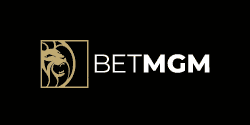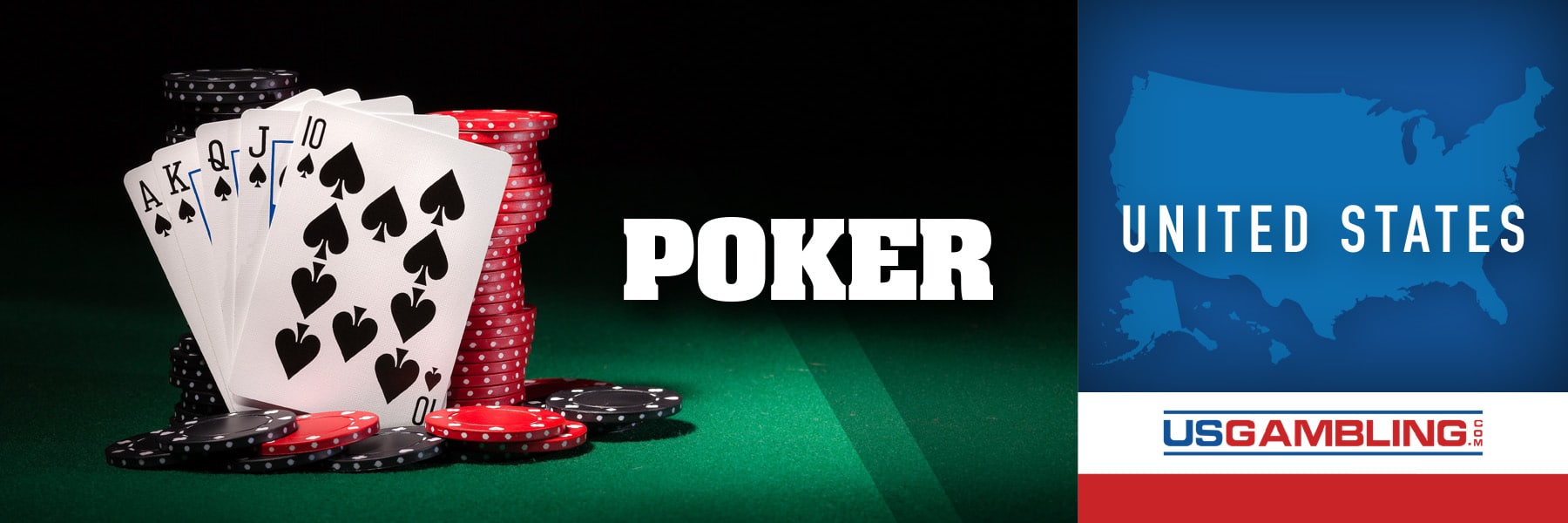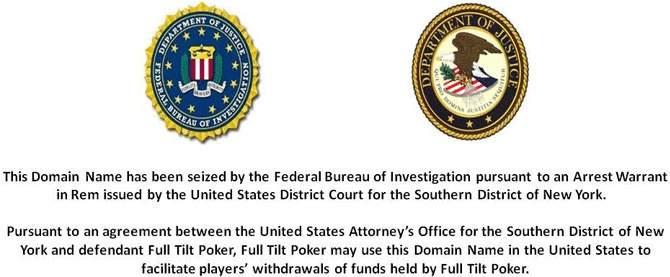US Poker Sites
Real-money online poker is legal in nine states but operational in just four. However, players in most of the USA have access to sweepstakes poker sites, which avoid classification as gambling by tweaking their offerings to conform with federal sweepstakes laws.
The launch of the first legal poker sites in 2013 marked a significant turning point for the game in the United States. Prior to 2013, not a single licensed poker site operated anywhere in the country. Between the increasing number of states legalizing online poker and the rise of sweepstakes, most of our readers already have access to legal online poker.
Poker is mostly regulated at the state level in the USA, which means the laws vary from one state to the next. This makes for a somewhat confusing legal situation, but we aim to get you started as quickly and efficiently as possible. Once you know what’s available in your state, the rest is just a matter of choosing where to play.
Legal Online Poker Sites

21+ to Play. T&Cs Apply. Gambling Problem? Call 1-800-GAMBLER
Online Poker In The USA
Licensed online poker sites operate in four states today:
Five additional states have legalized online poker but don’t have active operators:
Additionally, sweepstakes poker sites serve most of the US. Only a handful of states explicitly prohibit sweepstakes gambling platforms.
Delaware, Nevada and New Jersey were the first to move toward legalization in 2013 following a change in federal law. Pennsylvania followed suit in 2017, and additional states have followed suit since then.
To answer one important question up front, you must be physically present within state lines to play at any poker site licensed in that state. You do not need to be a resident, but you do need to be there in-person to play online. The same applies to US sweepstakes poker sites: you must be physically located in a state where that platform operates to participate in real-money games.
Poker Site Reviews
- BetMGM Poker
- WSOP.com (coming soon)
- Party Poker (coming soon)
- GlobalPoker.com (coming soon)
- PokerStars.com (coming soon)
Delaware Poker Sites
Delaware legalized online gambling in 2012 and the first poker sites launched in November 2013 around the same time New Jersey’s first poker sites were going live. There are now three licensed poker sites in Delaware managed by the state’s three land-based casinos:
- Delaware Park Poker
- Dover Downs Poker
- Harrington Gaming Online Poker
In Delaware, online gambling and poker are run as an extension of the state lottery with each of the state’s three casinos getting a piece of the action. Because online gambling is run as a monopoly in Delaware, all three poker sites are powered by the same software provider: 888 Holdings.
The setup in Delaware means there are no real differences between the state’s three licensed poker sites. All use the same software, share a single player pool and offer similar welcome bonuses.
Player traffic was a major problem at first with Delaware having a small population, but the state has made moves to ease that by signing compacts with other states such as New Jersey and Nevada to share players across state lines.
DE Quick Facts
- First poker sites launched: November 2013
- Online poker regulatory body: DE Lottery
- Minimum age to play: 21
Michigan Online Poker
Michigan legalized online poker in 2019 as a part of a large gaming expansion package that also authorized online casinos and sportsbooks. Regulators oversaw the launch of mobile sports betting and casino sites in January 2021, followed by the launch of online poker later that month.
Two poker sites are open for business in Michigan today:
- BetMGM Poker
- PokerStars
BetMGM poker also has easy access to the Michigan poker market. BetMGM Poker can leverage its relationship with MGM Grand Detroit for market access, while PokerStars has a deal in place with the Little Traverse Bay Band Bands of Odawa Indians, who operate the Odawa Casinos in Petoskey and Mackinaw City.
MI Quick Facts
- First poker sites launched: January 2021
- Online poker regulatory body: Michigan Gaming Control Board (MGCB)
- Minimum age to play: 21
Nevada Poker Sites
Nevada was the first state in the USA to legalize online poker with regulations drafted by the Nevada Gaming Commission in 2011 and a piece of legislation passed into law in 2013. The first poker site launched in April 2013 and was later followed by the launch of two more poker sites.
Licensed Nevada poker sites:
- WSOP NV
Ultimate Poker was the first site to launch but later closed for business amid difficulties staying afloat in a single-state market. A second poker site, Real Gaming, also opened and later shut down under similar circumstances.
This leaves WSOP Nevada as the one remaining legal NV poker site. WSOP NV has greater staying power with the backing of 888 Holdings, which is also active in other states with legal online poker.
Nevada’s online poker market has also been slow to grow, but player sharing agreements with other states such as Delaware and New Jersey have brought some much-needed liquidity in terms of traffic.
NV Quick Facts
- First poker sites launched: April 2013
- Online poker regulatory body: Nevada Gaming Control Board (NGCB)
- Minimum age to play: 21
New Jersey Poker Sites
New Jersey legalized online poker in 2013 and the first poker sites opened for business that November. There are now seven licensed poker sites in New Jersey:
- BetMGM Poker
- Borgata Poker
- WSOP
- Party Poker
- PokerStars
- 888 Poker
In New Jersey, land-based casinos hold all online gambling licenses but are allowed to partner with outside companies such as 888, PokerStars and 888 to launch poker sites. Additionally, each NJ casino is allowed to operate multiple poker sites if it wishes.
Borgata has been especially busy in this regard with Borgata Poker, Party Poker, Pala Poker and PlayMGM Poker all operating off its online gaming license. These poker sites are all independent of one another and therefore compete, but all are partnered with Borgata AC for access to the NJ market.
NJ Quick Facts
- First poker sites launched: November 2013
- Online poker regulatory body: NJ Division of Gaming Enforcement (NJDGE)
- Minimum age to play: 21
Pennsylvania Online Poker
Pennsylvania legalized online poker in 2017 as a part of a large gambling overhaul bill dealing with online gambling and lottery games, sports betting and more. The first PA poker sites launched in November 2019:
- BetMGM Poker
- WSOP PA
- PokerStars
Like New Jersey, Pennsylvania issues online gaming licenses to land-based operators who are permitted to partner with third-party gaming software providers. Pennsylvania gaming law also allows other “qualified gaming entities” to apply for any leftover licenses not claimed by local casinos. Therefore, we expect to see some out-of-state applicants apply for online gambling and poker licenses.
To date, the following land-based gaming operators have applied for online poker licenses:
- Harrah’s Philadelphia
- Hollywood Casino at Penn National
- Mount Airy Casino Resort (PokerStars)
- Parx Casino
- Sands Bethlehem
- SugarHouse Casino
- Valley Forge Casino Resort
The implementation of online poker in Pennsylvania has been hit with delay after delay, so an exact timeline is hard to pin down. Gaming Control Board officials have said they’re aiming for a mid-2019 launch, but past experience tells us projections in PA are not hard-and-fast by any stretch.
PA Quick Facts
- First poker sites launched: To be determined
- Online poker regulatory body: Pennsylvania Gaming Control Board (PGCB)
- Minimum age to play: 21
West Virginia Online Poker
West Virginia became the fifth state to legalize online poker after a bipartisan gambling bill made its way to the desk of Governor Jim Justice. He allowed the bill to pass into law without his signature to officially make WV a pro-online poker state.
The new gaming law will allow the WV Lottery Commission (WVLC) to issue up to five online gaming licenses, corresponding to the state’s five land-based casinos. Each licensee will be allowed to contract with outside software providers to operate casino games and poker.
West Virginia’s poker law also grants the state the authority to enter interstate wagering agreements with other states. For poker players, this means WV will be able to tap into the growing multi-state poker network for busier cash games and bigger tournaments.
WV Quick Facts
- First poker sites launched: To be determined
- Online poker regulatory body: WV Lottery Commission (WVLC)
- Minimum age to play: 21
Multistate Poker Compacts Are Improving Traffic
While the state-by-state rollout of online poker legislation has been a positive development for players overall, it has been slow going. When states gained the ability to legalize online poker in 2011, expectations were high that a new poker boom was on the horizon. Optimism has dampened since then with only nine states legalizing online poker.
The slow, one-state-a-time approach to poker legislation has impacted poker more than other forms of gambling because poker needs a large player base to function properly. Fortunately, the states that have chosen to regulate online poker so far have opted not to impose ring-fencing rules to keep player bases divided by state.
Six states have signed agreements allowing for interstate player sharing agreements:
- Delaware
- Michigan
- Nevada
- New Jersey
- West Virginia
- Pennsylvania
The future of online poker in the United States is bright. It is not moving as quickly as many of us would like to see, but the industry is growing and things are slowly moving in the right direction.
Legal US Poker Apps
Although online poker does not naturally lend itself to mobile play with many moving parts, operators have come up with clever ways to make the most of limited screen real estate to develop mobile apps that are surprisingly intuitive and easy to use.
Today, the major legal US poker sites all offer mobile apps that you can find with a quick search in the app store or by visiting the poker site’s website for a current download link.
If you have any experience playing poker on your desktop, you’ll find the mobile version isn’t actually all that different when it comes to the table layout and betting options. Mobile poker is always played in landscape mode (turning your device sideways) and buttons are a bit bigger, but everything still works in the same general manner.
While early mobile poker apps were severely limited in functionality and often only supported specific game types, modern poker apps have come a long way. Most poker apps today support cash games and tournaments alike along with all the regular customization options you would have available through the full desktop client.
Mobile Poker Multi-Tabling
Some poker sites have even come up with ways to support multi-tabling. For example, the Party Poker app supports up to 4 tables at a time with a mini-view display showing your hole cards at the other tables and prompts to act when it’s your turn.
Multi-tabling with a mobile app probably isn’t ideal if you want to sit down and give every table your full attention, but it can be done. If you do decide to multi-table on the go, our best advice is to be sure you’re somewhere where you can pay close attention to what’s happening on-screen.
Why Legal Online Poker Is Better Than Offshore
Unregulated offshore poker sites are full of drawbacks and expose players to significant risks.
The legalization of online poker in the USA has vastly improved security standards for players’ funds and private information while ensuring fair games. Some of the most prominent advantages of using licensed operators to play online poker in the US include:
Player Protection
Everything on a legal poker site is legitimate. All players must confirm their identity before they can begin playing online. Before you deposit and visit a poker room or try and play some free poker, the site needs to know who you are. These online poker rooms use casino-level security to protect personal information, so your details won’t be passed to any third parties without your knowledge.
Playing at an offshore site, your information is not protected, and you will be at much more risk of data being compromised.
Safe Deposits & Withdrawals
Regulated online poker sites in the US must operate under the strict guidelines and regulations imposed by the state’s appointed gambling authority. Consequently, every poker room must prove they have the required secure payment systems to hold your funds. The best poker sites will also process your payments in a timely manner. Licenses are linked to a brick-and-mortar casino or lottery program, which further emphasizes the point that financial transactions will run smoothly.
If you want to play a poker game on a black market site, you will experience significant issues getting your funds in a reasonable timeframe. In some cases, bettors don’t receive their cash at all, and if this happens, there is not a lot you can do.
Responsible Gambling Tools
The rules and protocols on legal sites are constantly monitored, and any operator that doesn’t abide by these rules will suffer major consequences. As unregulated sites don’t fall under these regulations, they can manipulate their policies, bonuses, and promotions, and the outcome of the game itself.
No recognized authority can enforce fairness on the part of offshore poker sites, so if a player suffers, there isn’t much that can be done. If an online poker site refuses to pay your winnings or exposes your financial details, there’s not a regulatory agency you can call for assistance.
The Inevitable Decline of Offshore Poker Sites
Offshore poker sites once held a near monopoly over the online poker market due to the lack of legal options stateside, but they have never been less necessary than today. In fact, offshore operators are essentially obsolete in all but a handful of states thanks to two legal alternatives to play poker online in the USA:
- Licensed poker sites in states that have legalized online gambling
- Sweepstakes poker sites that operate under US sweepstakes laws
US Online Poker Timeline
The online poker industry has undergone many significant changes over the years, starting from the earliest days with primitive, text-based games played over IRC all the way up to today’s modern poker sites endorsed by the WSOP itself.
Over that time, the game has gone through drastic swings of fortune not unlike the bankroll of a overly aggressive player. In the earliest days, players made do with limited technology and almost zero precedent but still learned valuable lessons in strategy and patience.
As technology improved and interest grew, poker would eventually become a multi-billion-dollar industry attracting the attention of deep-pocketed investors and law enforcement alike to send us on a journey that is still far from reaching its final chapter.
States With Legal Poker Rooms
Most states have some form of legal poker, whether that be at casinos, home games or online. When it comes to in-person poker, forty states have casinos and most of those spread poker games. Home poker games are also legal in a fair number of states, including some states without actual casinos.
Online poker is still a work in progress with only a handful of states passing legislation to authorize poker sites. We have seen signs of momentum picking up in recent years, however, with more states considering following the path set by states such as New Jersey, Delaware, Nevada and Pennsylvania.
When it comes to home games in particular, players should be extra mindful of the law surrounding such games. Not all states regulate social poker games identically. For instance, some states take an anything goes approach as long as home games are not run for a profit while other states actually enforce limits on bet sizes.
Our handy reference chart below should help clarify the situation wherever you live, but keep in mind we are not lawyers and this advice should be taken only as a rough guideline for getting started. If you plan on playing real money poker in a home game, it would be wise to speak with an attorney or law enforcement official first. Even today, police do occasionally raid illegal poker games in the US.
| Alabama
| Alaska
| Arizona
| Arkansas
| California
|
| Colorado
| Connecticut
| Delaware
| Florida
| Georgia
|
| Hawaii
| Idaho
| Illinois
| Indiana
| Iowa
|
| Kansas
| Kentucky
| Louisiana
| Maine
| Maryland
|
| Massachusetts
| Michigan
| Minnesota
| Mississippi
| Missouri
|
| Montana
| Nebraska
| Nevada
| New Hampshire
| New Jersey
|
| New Mexico
| New York
| North Carolina
| North Dakota
| Ohio
|
| Oklahoma
| Oregon
| Pennsylvania
| Rhode Island
| South Carolina
|
| South Dakota
| Tennessee
| Texas
| Utah
| Vermont
|
| Virginia
| Washington
| West Virginia
| Wisconsin
| Wyoming
|
Major US Poker Tournaments
Major poker tournaments don’t just make for great TV, they’re actually more accessible to the average poker player than new players might assume. Between the many feeder satellites held in-person and those hosted online, getting a seat at the big table is a very realistic goal for any serious player.
You can brush up your skills through an almost infinite number of smaller tournaments held around the country every year, but below we’ll be profiling only the biggest and best. If you dream of scooping a life-changing payout, these are the tournaments to note.
Online Satellites to Live Poker Tournaments
The passage of the UIGEA in 2006 and Black Friday in 2011 were noted for their impact on nearly destroying online poker as we know it, but the effects were also felt in the real world as major land-based tournaments saw entry numbers drop following both events.
The WSOP Main Event, for example, saw a record turnout in 2006 when 8,773 players showed up for a shot at poker glory. The UIGEA was enacted later that year and the effects were felt the following year with nearly 2,500 fewer people showing up at the 2007 Main Event as a result of fewer poker sites serving US players and hosting WSOP satellites.
Poker’s Black Friday had a similar although less profound effect on live tournament turnout. By 2010, WSOP fields had recovered somewhat after the shock of the UIGEA had worn off and that year’s tournament attracted 7,319 entrants. After Black Friday hit in 2011, the field that year shrank to 6,865.
Although the WSOP was still a major tournament, it was clear government actions had an impact on attendance. Today, those numbers are recovering and once again the WSOP is reaching record numbers.
Some of the recovery almost certainly has to do with a stronger US economy, but the launch of the first legal poker sites in three states in 2013 have also helped. WSOP.com, which operates in both Nevada and New Jersey, is back to holding satellites to the World Series Main Event and that has helped.
As legal online poker spreads, there is little doubt live tournaments will benefit as well. If you live in a state with legal online poker, you shouldn’t have too much trouble finding satellites to live events from your desktop or mobile device. Not only is this convenient, but online satellites tend to be inexpensive and therefore compatible with bankrolls of all sizes.
US Online Poker FAQ
Below are answers to some of the most frequently asked questions regarding poker. These are listed in no particular order and cover a range of topics, but we hope you find these useful. If you have a question not listed below, feel free to contact us and ask a question. The odds are if you have a specific question, you’re not the only one.



